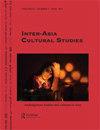Wartime collaboration through a collaborator’s eyes: Zhou Fohai (1897–1947) and his diary
IF 0.4
4区 社会学
Q4 ANTHROPOLOGY
引用次数: 0
Abstract
ABSTRACT This paper examines the politics and ideology of collaboration in China during the War of Resistance against Japanese Aggression through Zhou Fohai’s diary. It suggests that his collaboration be understood as a complex wartime phenomenon that demonstrates a different version of nationalism with an aim to alleviate pains and hardships of the people during the war and with a prospect for China’s survival and development based on anti-communism and Sun Yat-sen’s Pan-Asian idea that viewed Japan as its crucial partner. Zhou’s collaboration also needs to be approached within the context of the Guomindang’s political culture and history, as he believed that organizing a separate National Government had been an acceptable political undertaking in the party with two precedents. His diary also testifies that the debacle of the Nanjing collaborationist government was not just due to its nature as a “puppet regime,” but a product of complex factors deep-seated in the party’s incorrigible culture and practice.合作者眼中的战时合作:周佛海(1897-1947)和他的日记
摘要本文通过周佛海的日记来考察抗日战争时期中国的合作政治和思想。这表明,他的合作可以理解为一种复杂的战时现象,展示了一种不同版本的民族主义,其目的是减轻战争期间人民的痛苦和艰辛,并以反共和孙中山视日本为关键伙伴的泛亚思想为基础,展望中国的生存和发展。周的合作也需要在国民党政治文化和历史的背景下进行,因为他相信组织一个独立的国民政府在党内是一个可以接受的政治事业,有两个先例。他的日记还证明,南京国共政府的溃败不仅仅是因为其“傀儡政权”的性质,而是由于党内根深蒂固的不可救药的文化和实践中复杂因素的产物。
本文章由计算机程序翻译,如有差异,请以英文原文为准。
求助全文
约1分钟内获得全文
求助全文
来源期刊

Inter-Asia Cultural Studies
Multiple-
CiteScore
0.90
自引率
20.00%
发文量
22
期刊介绍:
The cultural question is among the most important yet difficult subjects facing inter-Asia today. Throughout the 20th century, worldwide competition over capital, colonial history, and the Cold War has jeopardized interactions among cultures. Globalization of technology, regionalization of economy and the end of the Cold War have opened up a unique opportunity for cultural exchanges to take place. In response to global cultural changes, cultural studies has emerged internationally as an energetic field of scholarship. Inter-Asia Cultural Studies gives a long overdue voice, throughout the global intellectual community, to those concerned with inter-Asia processes.
 求助内容:
求助内容: 应助结果提醒方式:
应助结果提醒方式:


